Cyclicality Of Causality: Book Of Life-Utility Ideas - Santosh Jha (which ebook reader .TXT) 📗
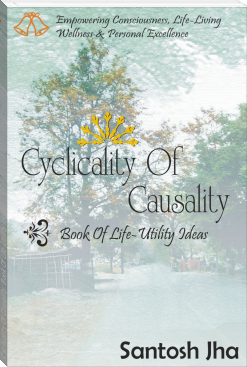
- Author: Santosh Jha
Book online «Cyclicality Of Causality: Book Of Life-Utility Ideas - Santosh Jha (which ebook reader .TXT) 📗». Author Santosh Jha
This is a metaphor of what plasticity is all about and how it writes its own beautiful script of life, which the decisive destiny makes no provision of. Neuroplasticity is a term, which has similar connotation, which we all must understand and accept as potent tool to override our destinies, adding all those beautifully endowed shades of life and living experiences, which destinies make little provision of.
Neuroplasticity is a term given to a mechanism, which is about physiological changes actually happenings in the brain, brought about by mind consciousness. It refers to changes in neural pathways and synapses owing to changes in behaviour, environment, neural processes, thinking, and emotions, as well as to changes resulting from bodily injury.
This is very real yet seems so magical and mystical. This shows how brilliant yet so complex and mesmerizing our body-mind mechanism is. What this magic is all about? The magic and marvel is about how the intangible elements of our life-living experiences become so powerful that they actually bring about tangible changes in the brain. The intangibles are behaviour, emotions, thinking, attitude, orientation, resolve, etc. These intangibles are about our personal choices of conscious mind, which we put in place in our lives for certain desirable destiny. And, our brain responds to that. Sure, this stupid called brain is wayward and likes to be in the comfort of inertia, if we choose to be in the drift of our subconscious minds. However, the same brain becomes our great facilitator friend, the moment our conscious mind takes control and invests rightly in the intangibles. This as we now know, is a process called neuroplasticity, which signifies that destinies can be changed and this happens by actual and physiological changes in our brains.
In contemporary world, especially the developed societies, people are growingly accepting the realism that mind is the centre of all realism. The realism, we think as something external to us, in our pop belief, designing our destinies is a huge misnomer. The reality is – everything is engendered within us and we see only their images in the external world. What truly matters to us are not the tangibles but the intangibles.
Life is about plasticity, destinies we all have and end up with are about plasticity. That is probably why we have our brains, which also has plasticity. The neurons do it for us.
This leads us to the hypothesis we have been trying to work out in favour of loneliness. We cannot change things; we primarily cannot even know what needs to be changed. We cannot because, as science says, we buoy up and down in the vast ocean of sub-consciousness for most of our lives, only occasionally surfacing on the environment of consciousness. This happens to most of us and is surely aggrandized in those who live a life of drift and flux because of deep indulgence in the clutter culture, mad multitasking and instant self-gratification. We need to stop, keep away from this drift and think about self in a qualitative leisurely state of positive loneliness about what changes we need to bring in our lives for our wellness. We then have to consciously bring in those relevant intangibles in our mind consciousness, which can effect physiological changes in our brains. This shall institutionalize wellness and goodness in our lives.
Millions of people all over the world have been into this meditation. Meditation is nothing but a conscious choice of our minds, to physically keep away from those tangible elements in our external milieus, which are causing drift and flux in our lives. And then, with practice, meditative loneliness consciously brings about the intangibles into our mind consciousness. Gradually, as our brains build up new and facilitative neural pathways and synapses, we begin to feel the joys and satisfaction of the true wellness and happiness. The brain changes physiologically and gets aligned to the actual wellness and happiness.
The human mind, the functional mechanism of brain structures, has instinctive mechanism to universalize goodness as well as evil. What we feed in it is not its concern. This is the role of intellect. The intellect is the intangible faculty to be in control of the instinctive as well as the culturally learnt behaviours, to objectively assess all life-living choices with holistic logic.
The universe has not put us where we are today with any specific purpose of designed goodness. We have to design our purpose. As we repeat this objective mind training to our brain, the objective goodness would spread all throughout its neural circuitry. The notion of neuroplasticity says that brain can actually create new pathways to institutionalize this objective goodness. And then, we won’t have to think twice to perform goodness, as it would then become an instinct, and thus an involuntary mechanism, like a hand moving away involuntarily as it touches fire.
It has to be understood and accepted with all humility and compassion that a real good human is not one who needs to think and then behave and act good. Rather, it is one who does not have to think, as all his behaviours and actions are instinctively bound to be good. We don’t consciously remember when we drive a car or cook a meal as it is instinctive, even when they were once learned behaviours. Objective goodness is also learned behaviour. But when we repeatedly practice it, it becomes instinctive.
Neuroplasticity is also about this objective intellect. It is about consciously aligning with desirable intangibles of life and then practice them with mindfulness of higher consciousness, helped by meditation. This then becomes structured in our brains. This means, goodness and wellness is no more our choice, but it has become an auto-mode virtue, an optionless absoluteness for us.
That is why we have been insisting that loneliness is a positive state of being as it creates a space for mindfulness and option-building towards the ultimate optionlessess of goodness and wellness.
**
Life-Living Choice
Idealism Is Essentially The Most Pragmatic Realism – How And Why?
Medical experts say, “The muscular tissue of the body responds to emotional as well as physical tension and trauma by tensing up in a protective reflex. Over time, these muscular tissues become chronically stiff and hard, blocking sensation and energy flow in the affected area, causing diseases.
This points out to the sad fact that we live such a life where we are exposed to tough and highly competitive life, which throws to us stresses and traumas. This in turn makes our muscles contract, blocking life energy and sensations.
In ancient oriental life-living philosophy and spirituality, unrestricted flow of sensations and energies throughout the bodies was considered primary life duty. In Buddhist spirituality, they say, we should be so aware and in such higher consciousness that we could feel and even see (metaphorically) all tiny sensations of our body and mind. This gives us the golden control to accept all sensations – painful or joyful – with poise and equanimity…
What we need, especially in modern clutter culture and fast-paced conflicted and chaotic life-living, is soft-nurturing emotions of Tolerance, Affability, Humility, Innocence Of Attitude, Compassion, Mutuality, Love And Caring, Forgiveness et al to ease up and rejuvenate the tense and contracted muscles and consciousness…
It has to be accepted that goodness is not an idealism or utopian abstractions. All goodness are actually great pragmatism as they are must for our bare survival and excellence. Idealism is essentially the most pragmatic realism. We cannot live well blocking our life energies and vital sensations…
We all feel and accept that as these nurturing emotions have gone down in content – qualitatively as well as quantitatively; we are unable to feel the natural joys and good emotions of life wellness. This makes us sad, lonely, insensitive and ultimately aggressive and even enemy of almost everything soft and nurturing pragmatism…
We get caught in the vicious cycle of sadness and loneliness… we need to get back those soft-nurturing emotions in our lives….
There has also been this unfortunate realization that almost all softer and very nurturing emotions of life are becoming casualty in the wake of fast lives, workloads and too little leisure...
Somehow, it is not natural. We can say that over millions of years, humanity has successfully evolved and excelled because it had the repository of a huge range of very nurturing and protective range of softer emotions, in the family, society and culture.
The general complain too is that tolerance, affability, humility, innocence of attitude, compassion, mutuality, love and caring, forgiveness et al have been fast becoming scarce in societies and culture…
It does not take a genius to understand that these nurturing soft emotions are essential ingredients of our wellness. Let us all be pragmatic and live up this practicality of wellness and excellence.
**
Poise
Emotions Make Fine-Line Between Optimum And Maximum Blurred
It is important to understand and accept that most behaviour and actions of average people are aimed at attaining or restoring overall poise of wellness. However, the actual choices depend mostly on how an individual subjectively perceives his or her life situation and what emotions shape or guide his or her choices. For example, a man, even in poor health, may opt for working more hours in office, instead of taking proper rest, if he perceives that he needs more money for better education of his kids.
Science says, ‘you are in your perspectives and your perspectives are in you’. This means, what and how an individual perceives his or her actual and real life situation can be very subjective. This is true with our perceptions about all things and life situations. It has to be understood that any cognitive factor of wellness is also subject to emotional interpretation. Like; income and wealth as a key cognitive factor for wellness is important but only up to a limit after which it rather has negative impact.
However, what actually is the optimum level of income and wealth is a subjective and emotional decision, given also the fact that we all live in a modern environment where income and wealth disparities are huge. Only 5 percent of global population owns 95 percent of wealth. This contemporary clutter culture has loads of such chaos, conflict and confusion, which irrationally affect choices of behaviours.
In such an environment, decision-making is more tilted towards emotional rather than logical. Scientists confirm that this cognitive-conundrum is biological, part of our body-mind mechanism. Science says, confusion and chaos makes one emotional in thinking and decision-making, as limbic system is activated. So, emotions make the fine-line between optimum and maximum blurred. This prompts risky behavior, even though the behavior is instinctively towards restoring or attaining the equilibrium of wellness.
First objective hypothesis seems to be that – the contemporary clutter culture is a dysfunctional and debilitating realism as it makes most of us land in chaos, conflict and confusion. Even scientists like Stephen Hawking have raised alarm over this. This clutter culture and resultant conflicts in turn lands us in a charged up emotional state, affecting our logical and appropriate decision-making, as it blurs our perceptions about actualism of realism.
Contemporary times are defined more by ‘reactionary-priorities’ of people, in action and behaviour choices. Much of it can be ascribed to clutter culture. Emotionalism almost always leads to reactionary choices. This has cyclic calamity for society and cultures...
Yes, emotions are good when you are in love and wish to optimize the joy of drift in the ocean of intimacy. However, you need never be ‘emotional’, while deciding about who is the right love-partner for you. In decision-making on major life-living issues, emotions always land you in unreal situation.
When you have opted consciously for a non-action or inaction positioning for your action-behavior, it is good if you ask your emotions to lead your pleasures. This is good because, everything is in ‘internalized-mode’ and you are in a singular and non-competitive time and space. However, when

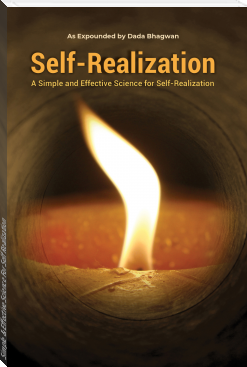
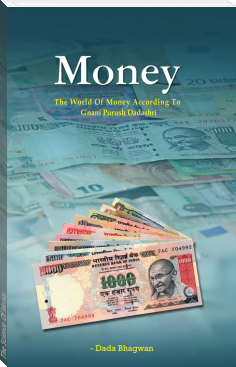
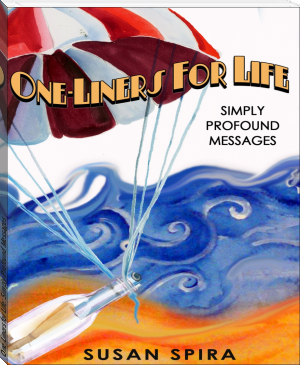
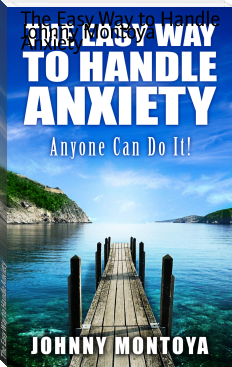
Comments (0)